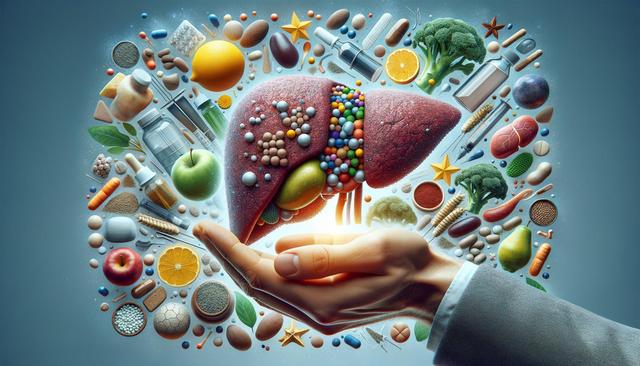Understanding Fatty Liver and Its Causes
Fatty liver, also known as hepatic steatosis, occurs when excess fat builds up in the liver. While having some fat in the liver is normal, too much can become a health concern. There are two main types: alcoholic fatty liver disease (AFLD) and non-alcoholic fatty liver disease (NAFLD). NAFLD is more common and is often linked to obesity, type 2 diabetes, and high cholesterol. Recognizing the underlying causes is the first step toward managing or reversing this condition.
Several factors may contribute to fatty liver, including:
- Poor dietary habits, such as high intake of sugar and processed foods
- Physical inactivity
- Obesity or being overweight, particularly around the abdomen
- Insulin resistance
- Excessive alcohol consumption (in AFLD)
Understanding these causes helps in crafting a targeted approach to reduce liver fat and improve overall liver health.
Adopting a Liver-Friendly Diet
One of the most effective ways to reduce fatty liver is through dietary modifications. A balanced, liver-friendly diet can help decrease fat accumulation and support liver function. Focus on nutrient-dense foods and avoid those that can exacerbate the condition. Some useful dietary guidelines include:
- Choose whole grains like oats, quinoa, and brown rice over refined carbohydrates
- Include plenty of vegetables, especially leafy greens, broccoli, and Brussels sprouts
- Opt for fruits with a low glycemic index, such as berries and apples
- Incorporate healthy fats from sources like avocados, nuts, seeds, and olive oil
- Limit or eliminate sugary beverages, desserts, and processed snacks
Additionally, some studies suggest that coffee (without added sugar or cream) may have protective effects on the liver. However, always consult a healthcare provider before making major dietary changes, especially if you have other health conditions.
Importance of Regular Physical Activity
Exercise plays a critical role in managing and reducing fatty liver. Regular physical activity helps burn triglycerides and reduces overall liver fat, even without significant weight loss. Both aerobic exercise and resistance training have shown benefits. A consistent routine can improve insulin sensitivity and support cardiovascular health as well.
Recommended physical activities include:
- Brisk walking or jogging for 30 minutes, five times a week
- Cycling or swimming as low-impact alternatives
- Strength training exercises at least twice a week
- Yoga or Pilates for flexibility and stress relief
Engaging in physical activity not only benefits the liver but also contributes to improved mood, better sleep, and enhanced energy levels. Starting slow and gradually increasing intensity can make the routine more sustainable over time.
Weight Management and Its Impact on Liver Health
Weight loss is often a key recommendation for individuals with fatty liver, particularly NAFLD. Research indicates that reducing body weight by 5–10% can significantly decrease liver fat and inflammation. The goal should be steady and realistic weight loss through a combination of improved diet and physical activity rather than rapid or extreme dieting.
Strategies for effective weight management include:
- Setting short-term, achievable goals
- Tracking food intake and physical activity
- Practicing mindful eating to avoid overeating
- Limiting portion sizes and eating more slowly
- Seeking support from a healthcare provider or dietitian
Maintaining a healthy weight over the long term requires lifestyle changes rather than temporary fixes. Regular monitoring and adjustments can help keep progress on track and support liver health in the process.
Limiting Alcohol and Avoiding Harmful Substances
While alcohol is a key factor in AFLD, reducing or eliminating alcohol consumption is also beneficial for those with NAFLD. Alcohol can worsen liver inflammation and fat accumulation. Even moderate drinking may pose a risk for individuals already dealing with liver issues. In addition to alcohol, certain medications and supplements may affect liver function. Always consult a healthcare provider before starting new treatments.
To protect liver health, consider the following habits:
- Avoid alcohol or consume it only in moderation, if at all
- Read labels to identify potentially harmful ingredients in over-the-counter medications
- Limit exposure to environmental toxins and chemicals
- Stay hydrated and choose water over sugary or caffeinated beverages
Making these adjustments can contribute to a healthier liver and reduce the risk of progression to more serious conditions, such as cirrhosis or liver cancer.












